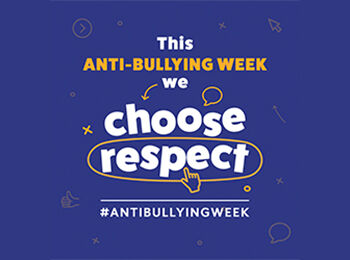Expert comment Last updated 12 November 2018

To mark Anti-Bullying Week (Nov 12 – 16), Birmingham City University bullying expert Dr Elizabeth Nassem explores how bullying is dealt with in schools, what needs to change and how mentoring could play a key role.
Despite schools having a legal duty to tackle bullying and the wealth of interventions to eradicate it, bullying remains a serious problem, entrenched in children’s everyday experiences of school, and associated with anxiety, depression and even suicide.
In my research I’ve found that some pupils are beaten up, hit, spit on and kicked as they walk between lessons; children with learning difficulties are often called ‘thick’. Some are ostracised to the point that they spend playtimes alone; pupils whipped with sticks and forced into bins; and children who misbehave have spent several days alone in isolation booths unsure of what they have done wrong.
Overlooked
Unfortunately, many schools I have worked in and researched, misunderstand the nature of bullying and implement strategies which do not stop the bullying; in many cases reporting bullying can cause it to escalate. Teachers tend to perceive bullying as a binary phenomenon whereby children are either being bullied or they are not. In doing so they overlook, and are dismissive of, more nuanced experiences of bullying children have, such as bullying between ‘friends.’ If children retaliate to being bullied, they are no longer seen as being victimised and are instead identified as a ‘bully’ and punished for their behaviour. Children who report bullying have been told by their teacher, ‘you are not being bullied, because if you were, we would deal with it; we take bullying very seriously’.
When schools do attempt to address bullying they usually instil punishment measures such as giving ‘bullies’ detention, putting them in isolation or making them miss their playtime. The punishment children experience makes them angrier, which they subsequently take out on the individuals who they victimise. Consequently, children who report bullying are often bullied even more for ‘grassing’ or being a ‘snitch’.
The vicious cycle of bullying continues and children get enmeshed within abusive relationships with their peers and teachers who they feel do not respect them. Conflict and hostility can thrive in relationships between teachers and certain pupils. Although some teachers can bully their pupils through humiliating them and unfairly targeting them, some pupils can enjoy victimising their teachers if they have the opportunity to do so.
Understanding bullying
Teachers are not usually encouraged to reflect on how common practices in school can contribute to bullying. Systems in school, such as streaming, can create hostilities and tensions between those who are in the top and bottom set. Children in the bottom set get teased and tormented because many of them are struggling academically and can take their anger out on ‘swots’ who are succeeding academically and bully them.
Schools need to improve their understanding of bullying and take into account the nuances involved. It is helpful to perceive bullying as a spectrum of negative interactions ranging from severe to mild for example, name-calling to being beaten up. Rather than associating bullying with a minority of pathologised individuals, educators need to consider how all children, to some extent, are involved in bullying and are affected by it.
A mentoring programme for children who persistently engage in bullying would help schools understand and resolve the underlying reasons why they are engaging in bullying. Mentees meet with a member of staff to talk about what they have done, reflect on the effect their behaviour is having on others and develop more respectful behaviours. Once mentoring has been provided to pupils who are persistently in conflict with one another, staff can bring these pupils together into a meeting to talk about the problems they are having with each other and agree how to move forwards.
Challenge normalised practice
To challenge normalised practices which enable bullying, teachers can collaborate with pupils to learn about their experiences of bullying. Ask children about their experiences of bullying, why children bully, how is bullying dealt with in school (is this helpful or unhelpful?) and how should it be dealt with? Pupils can become researchers who reflect on their own experiences of bullying and who work with their peers and teachers to develop strategies to resolve their bullying.
School staff would also benefit from reflecting on how they can improve their practice and school strategies for tackling bullying through learning about pupils’ experiences of bullying and their recommendations of how it should be dealt with. Encourage children to develop healthy relationships with their peers and teachers, understand when their relationships have become abusive and how to challenge relationships which have become harmful.
Educators can ensure children learn how to behave respectfully through interacting and speaking respectfully to children all the time. Teachers also need to feel confident enough to tackle bullying effectively so schools should find out what support staff feel they need to do so. Establishing support groups for pupils and teachers to meet and discuss bullying and what to do about it can ensure schools are better informed of the bullying their pupils are experiencing. Furthermore, it can help pupils and staff to become part of a community strengthened with resources to understand and tackle bullying together.
If you would like support in your organisation please email Elizabeth.nassem@bcu.ac.uk
Find out more about courses in education at Birmingham City University at the University’s Open Day on Sunday 25 November.